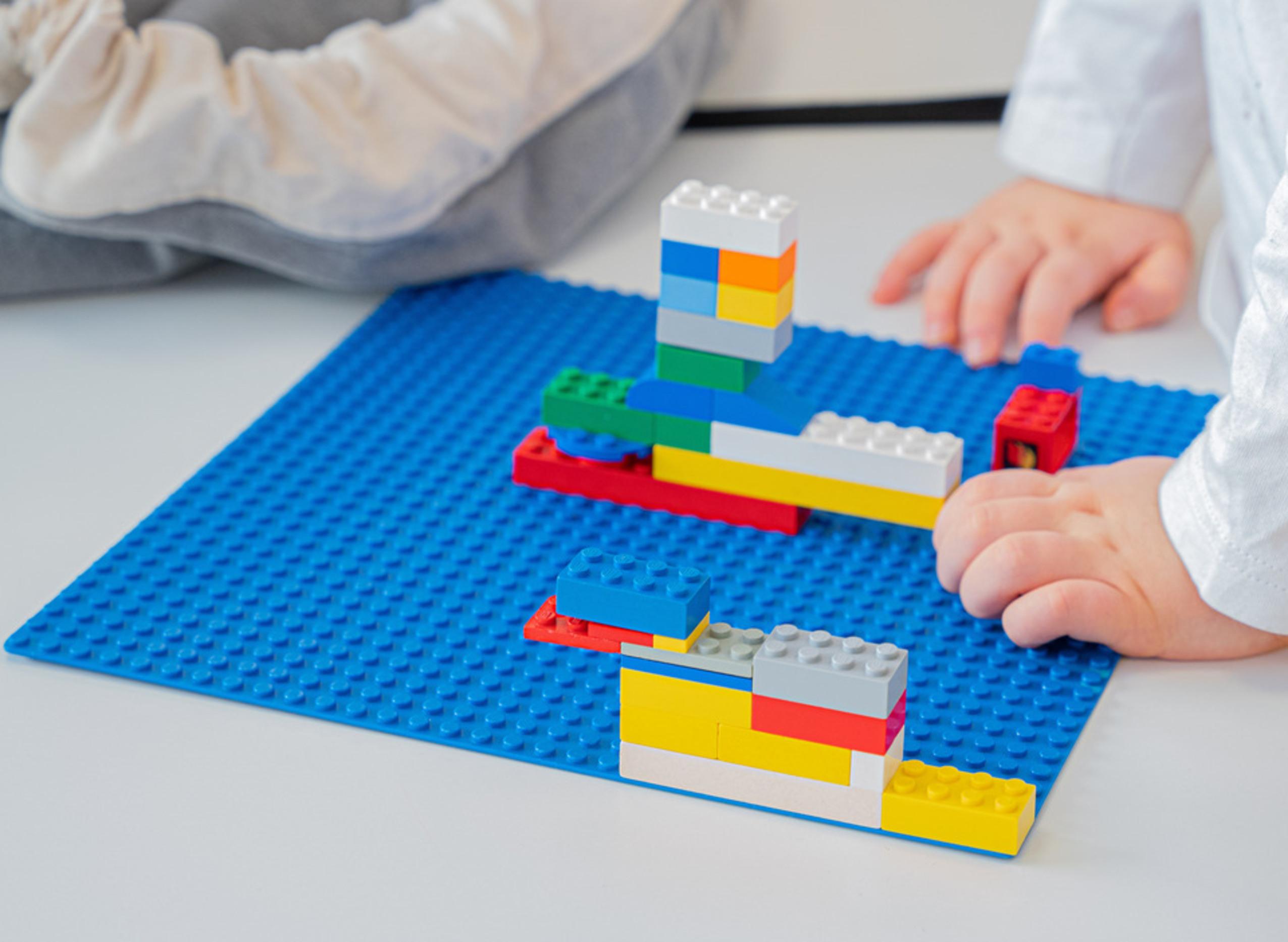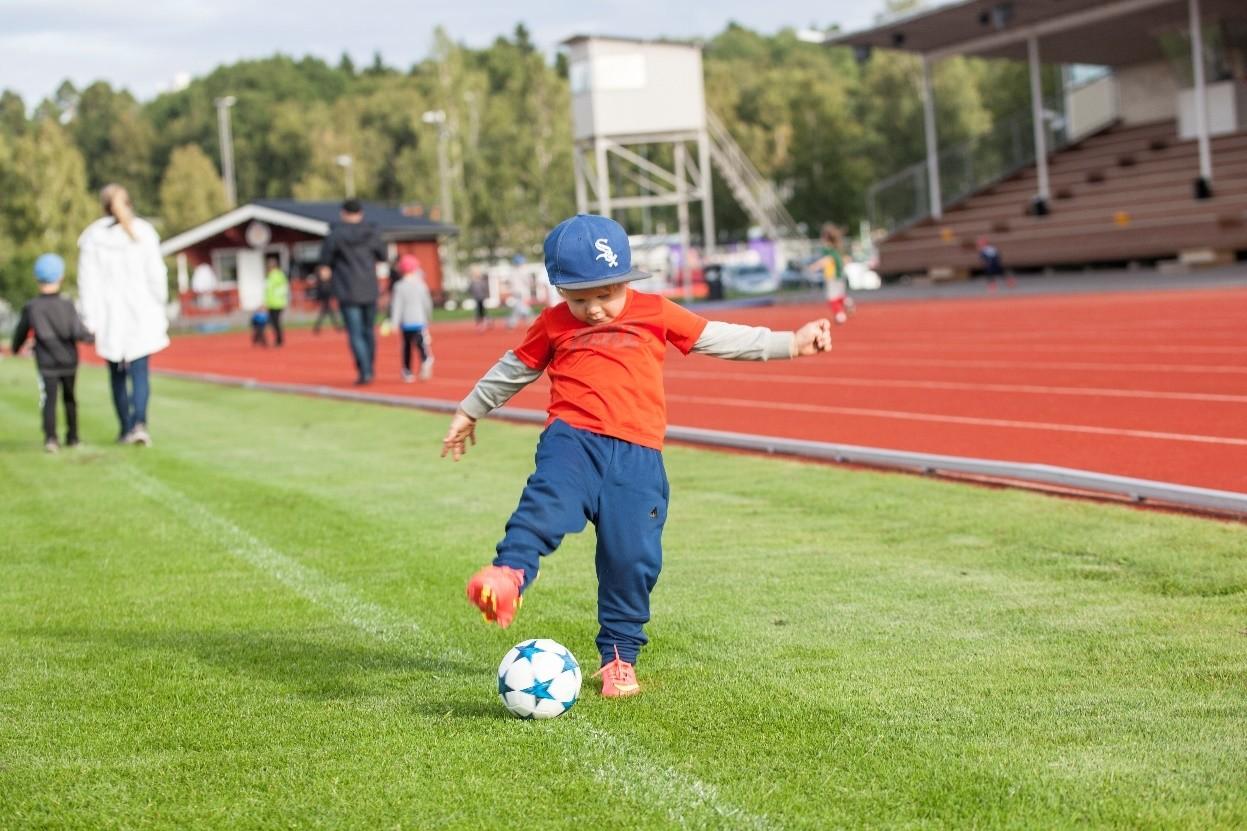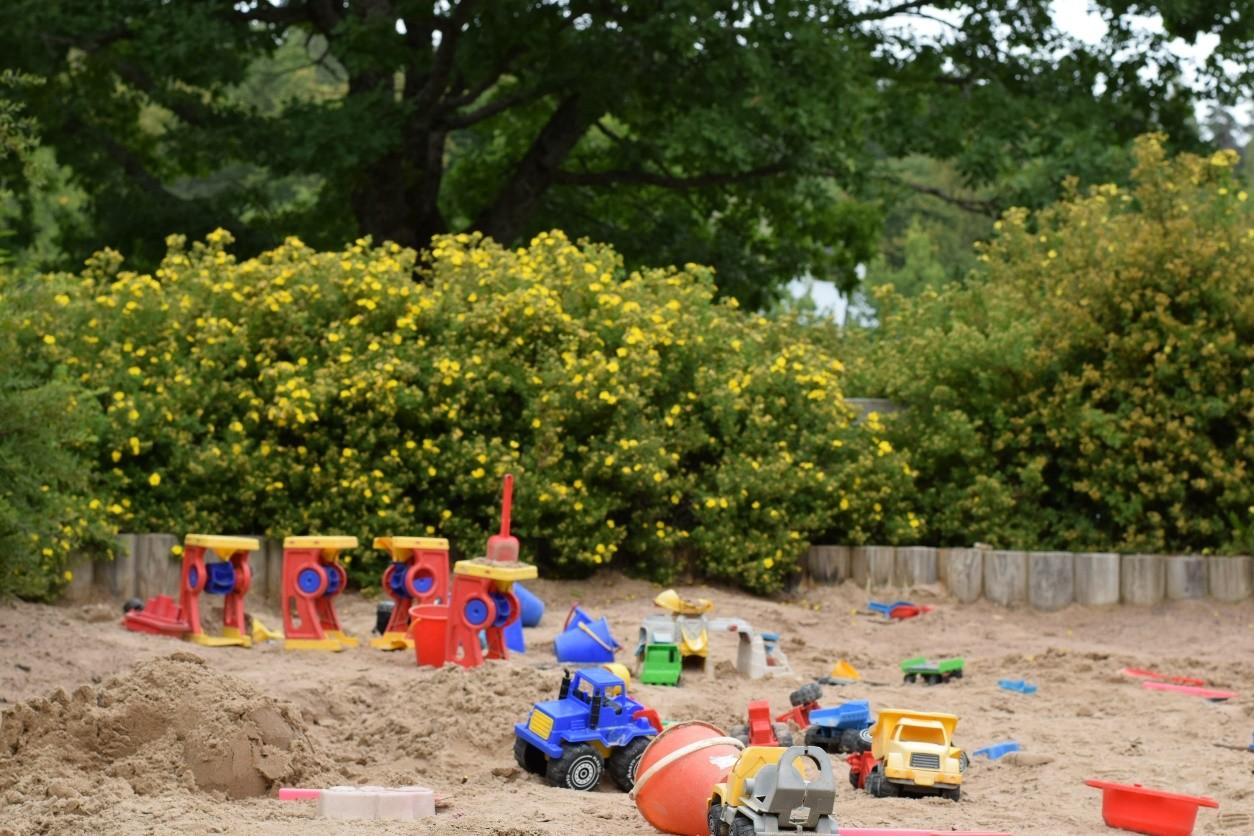WELCOME to early childhood education in Raasepori

RASEBORG.FI
DEAR LEGAL GUARDIAN
Starting a daycare means getting used to many new things for both you and your child — a new place and new routines and people — and as a legal guardian, you now share the responsibility for your child’s daily life, upbringing, and learning with new safe adults. However, you will always be the most important person in your child’s life and the best expert in matters related to him or her.
Starting in daycare brings with it new schedules that can feel exhausting and stressful at first. Despite the stress and uncertainty, it is important to always put the child first and think about the child’s best. Adapting to a new everyday life can take time, but over time, everything will fall into place.
For your child to do as well as possible in the daycare, it is important to discuss and work with the daycare staff. For instance, you could ask how the day went and how your child coped and felt. At the beginning of daycare, it is good to avoid other big changes in everyday life.
Be positive about starting a daycare, be positive and appreciate this opportunity. Talking about daycare in front of your child in a positive tone will help him or her get off to a good start.

Daycare centre facilities employ early childhood education teachers, child carers and assistants. Daycare centres also have the option of a special needs teacher as well as teacher of language and culture in early childhood education.
Children learn the skills they will need in the future. All situations of the day in daycare are relevant to learning. Play has a key role.
Involvement of children and parents is an important part of the activity.
Well-functioning educational cooperation between legal guardians and staff is important. We follow the early childhood education plan of the city of Raasepori.
https://www.raasepori.fi/lapset-nuoret-opetus/varhaiskasvatus- esikoulu/suunnitelmat
TIPS FOR A SMOOTH BEGINNING
It is important that the child feels safe during the change that starting a daycare means. A good way to give your child a chance to get to know something new is to visit daycare, play in the yard, and meet staff before the actual start. It is also valuable that as a parent you get to meet the staff and see where your child is spending their days!
Prior the actual start, we recommend an introductory period of 1-2 weeks, during which the child is allowed to practice being in daycare centre. Before the familiarization period, the staff, together with the legal guardian, will draw up a plan for how the familiarization period will be carried out in such a way as to meet the child's needs and make the start safe for the child. The introductory period allows the legal guardian to see the child's various everyday situations. These situations can be revisited when talking to a child at home.
In the groups of young children (1–3 years old), a self-care model is used, which means that one caregiver is primarily responsible for, for instance, four children. The child's selfcare provider is responsible for introducing the child to the daycare centre and giving the child the opportunity to become attached to safe adult in the daycare. Once a child has established a trusting relationship with a caregiver, the caregiver supports the child in building relationships with other adults and children in the daycare centre.
A start-up discussion is held at the very beginning, during which you can tell the staff about your child, your thoughts and expectations regarding the new, and to get acquainted with the activities. The aim of the opening discussion is to create a basis for future cooperation based on trust and mutual respect.
DAYCARE TODAY
SEPARATION
MAY CAUSE ANXIETY
Starting a daycare means the first real separation for most children and parents. The time before that has been an intense time of affection and intimacy. It is common for starting a daycare to cause separation anxiety in both parent and child. This is completely natural and usually goes away in a couple of weeks. Giving time for a proper introductory period is important because it helps give both the child and the parent a soft landing for a new everyday life. Your own dream toy or a picture of the family will comfort you if you miss greatly. A parent's positive attitude towards starting a daycare and operating a daycare helps the child to adjust. Having a child become part of a group of children and learn to trust and rely on adults other than their own parents also has many positive effects.
Developing routines for morning and afternoon starting and retrieving situations usually makes it easier to cope with these. Departure should not be delayed in the morning. Although the child is sad and crying, the child usually calms down quickly. Trust the staff to take care of your child! Still, if you feel anxious or worried, staff can send you a picture, for instance, when your child has calmed down and started playing. Talk to the staff if you are worried about anything! The staff has a lot of experience in all kinds of situations.

PRACTICAL TIPS
Bring a sleeping toy or rag, for instance. Pictures of loved ones can also be brought to the daycare centre.
For example, it is not advisable to schedule stopping using a pacifier or changing sleep arrangements until the start of the daycare.
When picking up a child, end any telephone conversations at the daycare centre gate at the latest and leave the stress out during picking up situation.
Dare to show sadness and the joy of seeing you again when you leave your child in daycare and pick him or her up.
Routines are important for a child! Try to maintain a regular daily rhythm regarding eating, sleeping and treatment times.
It may be good for your child's days to be shorter at the beginning so that they have time to get used to the new everyday life in stages. All children are individuals and react differently to starting a daycare.
FINDING TIME IN EVEYDAY LIFE
Despite the joy of seeing you again, it is not uncommon for a child not to want to come home when you come to pick him or her up at the end of the day. You may be faced with a child who is only now showing the anger, disappointment, and frustration he or she has accumulated during the day. In such awkward situations, clear pickup routines that can be used will help. The most important thing is that you can stay calm and that you understand that the child in this way shows his or her yearning for.
It is good if the parent can pay special attention to the child, especially in the early stages of starting daycare. If your child gets your undivided attention for a moment after coming home, for instance reading a fairy tale or making a puzzle, you may be better able to focus on cooking after that. Finding clothes and packing your backpack already in the evening can make your morning routines easier. Let your child participate in everyday chores and help with them!
COOPERATION BETWEEN HOME AND DAYCARE CENTRE
Well-functioning cooperation between home and daycare is important for the child's wellbeing and safety. Both parties have the best interests of the child first. It is important that you tell your child and how he or she works at home, and in the same way, it is important that staff tell you every day what kind of day your child has had and how he or she works in the daycare. Feel free to tell the staff if there are any things in your family that could affect your child’s presence in daycare. This will help staff support your child and be sensitive to your child’s coping and moods. If you have any concerns about a child or a child's day-to-day care, please talk to the staff.
Trust is not built overnight, but it grows as you get to know each other and appreciate each other’s thoughts.
As a legal guardian, you must be able to take part in the planning and assessment of activities, e.g., with parental evenings. Legal guardians will also be asked to fill out an assessment form after the child has started daycare and an electronic assessment during March.
In Raasepori, children evaluate activities in their own quarters, e.g., which means that every child is asked once a month for opinions, thoughts and interests. Support images and other support material are used here to help the child express their thoughts. Evaluations are utilized in the planning and development of operations.
WHAT IS EARLY EDUCATION?
Part of the Finnish education system. A planned and purposeful whole of education, teaching and care, in which pedagogy is emphasized.
Legal guardians have the primary responsibility for the upbringing of their children. The role of early childhood education, together with legal guardians, is to promote the child's growth, development and learning.
Supports legal guardians in educational work and enables guardians to work or study.
National targets for early childhood education are defined in the Early Childhood Education Act. The goals guide the preparation and implementation of the principles of the early childhood education plan, the local early childhood education plan and the child's own early childhood education plan.
The value base of early childhood education is built on the idea of the intrinsic value of childhood. Every child is unique and valuable as he or she is. All children have the right to be heard, seen, considered and understood as an individual and as part of a group. The best interests of the child shall be a primary consideration. The child has the right to wellbeing, care and security, the views of the child must be considered, the child must be treated equally and on parity and the child must not be discriminated against.
The pedagogical activity of early childhood education must be considered as a whole.
The aim is to promote the child's learning, wellbeing and diverse skills. The children's spontaneous activities, the common ideas of the staff and the children, and the activities planned by the staff are intended to complement each other.

Targeted activities are based on a value base, learning vision, operating culture, diverse learning environments, cooperation and operating methods.
Children's interests and needs and important issues related to children's growth environment, should serve as a starting point when planning activities. The second starting point is the different areas of learning.
Thinking and learning
BOARD LEARNING
Cultural understanding, interaction Taking care of oneself and everyday life skills
Engagement andinfluencing
Multiliteracy and information & communication skills
The rich world of languages
Bringing up, education and care Pedagogical activities of early education

Learn Experience Act Participate Express
Play Move around Observe
Various forms of Expressions Me and our community Observing and acting in our environment Growing up moving around and developing
Operational culture Learning environments Working methods Cooperation Pedagogical documentation Assessment and development VALUE BASE CONCEPT OF LEARING
GUIDFANCE AND SUPPORT IN FAMILY MATTERS
If you need more advice and support on family and everyday matters, there are a number of ways in which you can get help. Do not hesitate to contact!
Raasepori Children's Health and Counseling Centre https://www.raasepori.fi/sosaali-jaterveydenhuolto/terveyden-ja-sairaanhoito/ehkaiseva-terveydenhoito-ja-neuvonta/ lastenneuvola/
Family Centre (Raasepori)
https://www.raasepori.fi/sosaali-ja-terveydenhuolto/sosaalihuolto/perhekeskus/ Barnavårdsföreningen https://www.bvif.fi/fi/alku/
Church Parish Family Counseling Centre
https://www.raaseporinseurakunnat.fi/perheasiain-neuvottelukeskus
Parental support, family and couple therapy (Raasepori)
https://www.raasepori.fi/sosaali-ja-terveydenhuolto/terveyden-ja-sairaanhoito/ mielenterveys-ja-paihdehoito/vanhemmuuden-tuki-perhe-ja-pariterapia/
L E A R N I N G S E C T O R S L e a r n i n g e n v i r o n m e n t s C H I L D R E N S I N T E R E S T S A N D N E E D S





